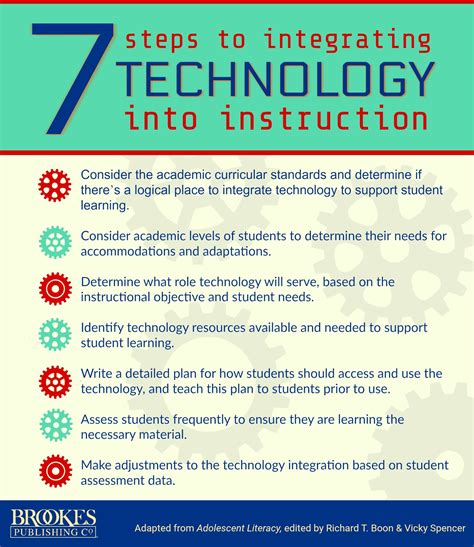In today's fast-paced, technology-driven world, becoming a successful tech integrator can be a highly rewarding and challenging career path. Tech integrators play a crucial role in helping individuals and organizations effectively incorporate technology into their daily lives and operations. By leveraging their expertise, they enable others to harness the full potential of technology, leading to increased productivity, improved efficiency, and enhanced innovation.

To succeed in this field, one must possess a unique blend of technical knowledge, business acumen, and interpersonal skills. Here are five ways to become a successful tech integrator:
Develop a Strong Foundation in Technology
A successful tech integrator must have a solid understanding of various technologies, including hardware, software, and networking systems. Staying up-to-date with the latest trends and advancements in technology is essential to remain competitive in this field. This can be achieved by:
- Pursuing formal education in computer science, information technology, or a related field
- Participating in online courses, workshops, and conferences to expand knowledge and skills
- Engaging in hands-on experience with different technologies to gain practical expertise
- Joining online communities and forums to stay informed about the latest developments in the tech industry

Understand Business Operations and Needs
To effectively integrate technology into an organization, a tech integrator must have a deep understanding of the business's operations, goals, and challenges. This requires:
- Developing knowledge of business principles, including finance, marketing, and management
- Analyzing industry trends and market demands to identify opportunities for technological innovation
- Building relationships with key stakeholders to understand their needs and concerns
- Collaborating with cross-functional teams to develop technology solutions that align with business objectives

Enhance Interpersonal and Communication Skills
As a tech integrator, one must be able to effectively communicate complex technical information to non-technical stakeholders. This requires:
- Developing strong verbal and written communication skills to articulate technical concepts in a clear and concise manner
- Building rapport with stakeholders to establish trust and credibility
- Facilitating collaboration and teamwork among cross-functional teams
- Providing training and support to ensure successful technology adoption

Stay Adaptable and Agile
The technology landscape is constantly evolving, with new innovations and disruptions emerging regularly. To remain successful, a tech integrator must be:
- Adaptable to changing technology trends and market demands
- Agile in responding to new opportunities and challenges
- Proactive in identifying potential roadblocks and developing contingency plans
- Committed to ongoing learning and professional development

Measure Success and Continuously Improve
To ensure long-term success, a tech integrator must establish metrics to measure the effectiveness of technology integrations. This involves:
- Defining key performance indicators (KPIs) to assess technology adoption and impact
- Conducting regular assessments and evaluations to identify areas for improvement
- Gathering feedback from stakeholders to inform future technology integrations
- Continuously refining and optimizing technology solutions to meet evolving business needs

Gallery of Tech Integrator





Frequently Asked Questions
What is a tech integrator?
+A tech integrator is a professional responsible for integrating technology into an organization to improve operations, increase efficiency, and enhance innovation.
What skills are required to be a successful tech integrator?
+A successful tech integrator requires a combination of technical, business, and interpersonal skills, including knowledge of various technologies, business principles, and effective communication and collaboration skills.
How do tech integrators measure success?
+Tech integrators measure success by establishing metrics to assess technology adoption and impact, conducting regular assessments and evaluations, and gathering feedback from stakeholders to inform future technology integrations.
As the demand for technology integration continues to grow, the role of the tech integrator will become increasingly important. By developing a strong foundation in technology, understanding business operations and needs, enhancing interpersonal and communication skills, staying adaptable and agile, and measuring success and continuously improving, individuals can become successful tech integrators and drive technological innovation in their organizations.
